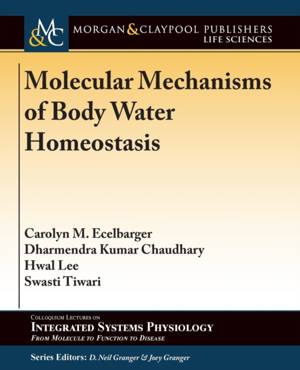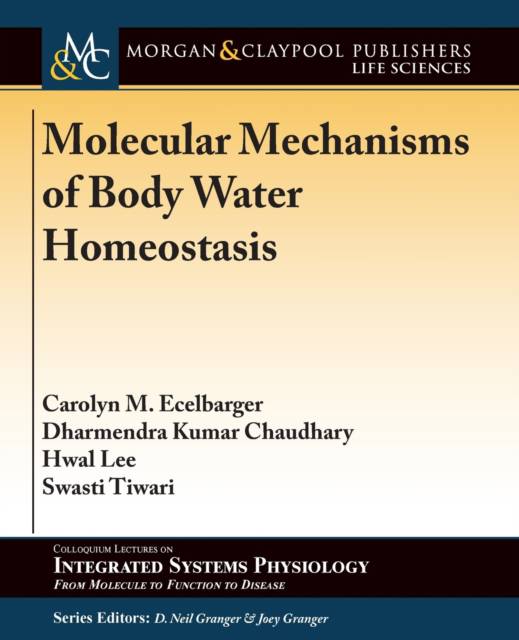
- Afhalen na 1 uur in een winkel met voorraad
- Gratis thuislevering in België vanaf € 30
- Ruim aanbod met 7 miljoen producten
- Afhalen na 1 uur in een winkel met voorraad
- Gratis thuislevering in België vanaf € 30
- Ruim aanbod met 7 miljoen producten
Zoeken
Molecular Mechanisms of Body Water Homeostasis
Carolyn M Ecelbarger, Dharmendra Kumar Chaudhary, Hwal Lee
€ 61,45
+ 122 punten
Omschrijving
This book discusses our intimate relationship with and dependence on water, how the body regulates its water levels, and various pathophysiological states associated with impairments in body water homeostasis. The human body consists of 70-80% water. Therefore, concise control of water homeostasis is essential to survival and involves coordination of several systems, but primarily the brain and kidney systems. Water requirements of the average healthy human range between 2-4 L/d, and a major portion of this can come from food sources. The major hormonal regulator of water balance is the anti-diuretic hormone, vasopressin. Vasopressin, a 9-amino acid peptide, is produced in the hypothalamus, stored in the posterior pituitary, and secreted when plasma osmolality rises. Vasopressin acts on the kidney to conserve water. The kidneys filter ∼180 L of blood per day, consisting of about 50-65% water, and reabsorb around 99% of this in the proximal tubule, distal tubule, and collecting duct, producing only 1-2 L of urine. The vasopressin-sensitive distal tubule and collecting duct are responsible for fine-tuning water reabsorption. Conditions exist, however, where urine cannot be concentrated effectively. This is known as diabetes insipidus and can lead to dehydration and failure to thrive. At the other extreme, hyponatremia (low serum sodium) is the inability to adequately dilute urine or get rid of free body water in excess of body needs, a serious and sometimes fatal condition.
Specificaties
Betrokkenen
- Auteur(s):
- Uitgeverij:
Inhoud
- Aantal bladzijden:
- 100
- Taal:
- Engels
- Reeks:
Eigenschappen
- Productcode (EAN):
- 9781615047321
- Verschijningsdatum:
- 7/11/2016
- Uitvoering:
- Paperback
- Formaat:
- Trade paperback (VS)
- Afmetingen:
- 190 mm x 235 mm
- Gewicht:
- 204 g

Alleen bij Standaard Boekhandel
+ 122 punten op je klantenkaart van Standaard Boekhandel
Beoordelingen
We publiceren alleen reviews die voldoen aan de voorwaarden voor reviews. Bekijk onze voorwaarden voor reviews.











